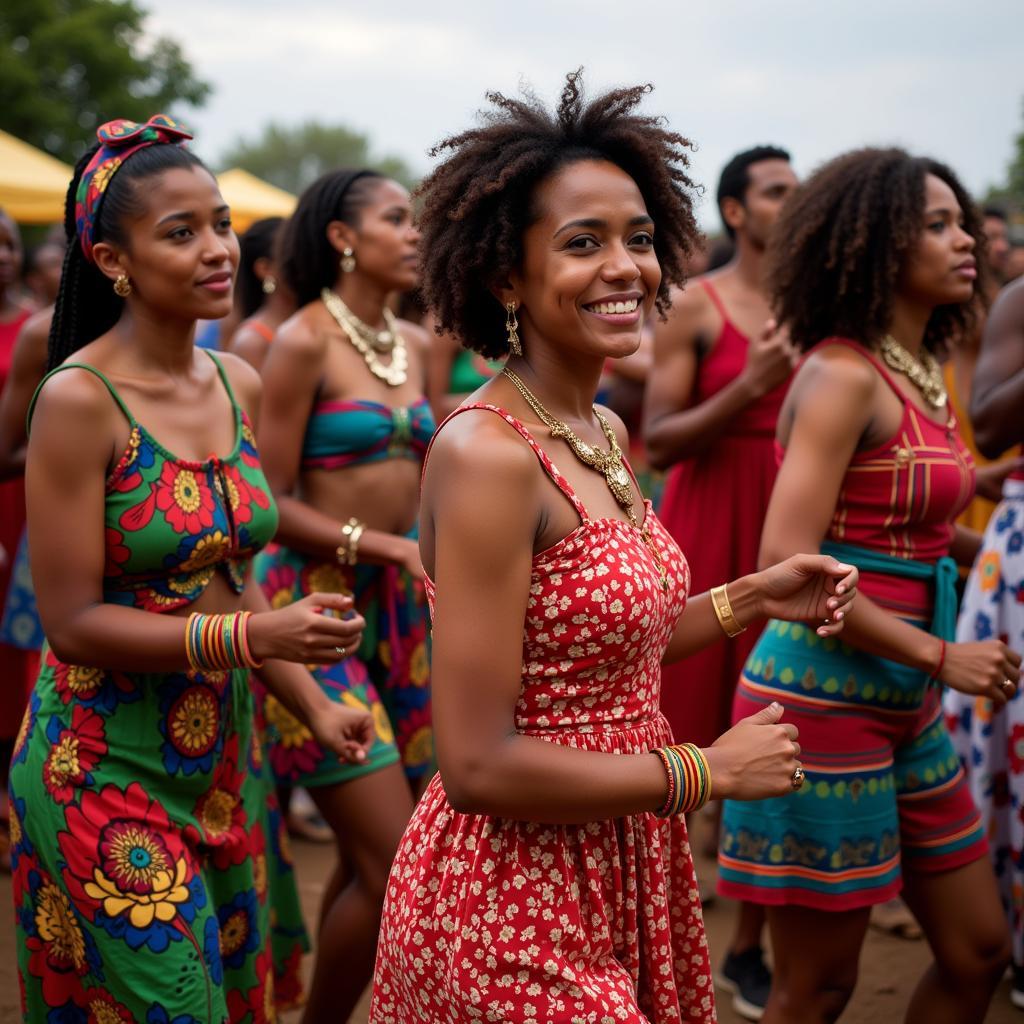The African American Civil Rights Movement of the 1960s: A Turning Point in History
The African American Civil Rights Movement of the 1960s marked a pivotal moment in the fight for racial equality in the United States. This period witnessed a surge of activism, protests, and legal battles aimed at dismantling the deeply ingrained system of segregation and discrimination that plagued the nation. From iconic marches to landmark legislation, the 1960s became a crucible for change, forever altering the social and political landscape of America.
A Legacy of Oppression: Setting the Stage for the Movement
To understand the significance of the African American Civil Rights Movement in the 1960s, it’s crucial to examine the historical context that led up to it. Following the Civil War and the abolition of slavery, African Americans continued to face systemic racism and discrimination, particularly in the Southern states. Jim Crow laws, enacted in the late 19th and early 20th centuries, enforced segregation in all aspects of public life, from schools and transportation to restrooms and restaurants.
This institutionalized racism denied African Americans basic human rights and perpetuated a system of white supremacy. Despite the efforts of earlier movements and individuals, true equality remained elusive for millions.
The Winds of Change: Key Events of the 1960s
The 1960s witnessed an unprecedented wave of activism that challenged the status quo. Empowered by a growing sense of urgency and inspired by leaders like Martin Luther King Jr., Malcolm X, and Rosa Parks, African Americans and their allies took to the streets, demanding justice and equal rights.
1. The Montgomery Bus Boycott: A Spark of Defiance
The 1955 Montgomery Bus Boycott, ignited by Rosa Parks’ refusal to give up her seat to a white man, is considered a seminal event that helped ignite the modern Civil Rights Movement. The boycott, lasting over a year, demonstrated the power of nonviolent resistance and captured national attention, propelling Dr. King into the national spotlight.
2. The Student Sit-ins: Youth Leading the Charge
In 1960, a group of African American college students in Greensboro, North Carolina, staged a sit-in at a segregated Woolworth’s lunch counter, refusing to leave until they were served. This act of defiance sparked a wave of similar sit-ins across the South, highlighting the role of young people in the fight for racial equality.
3. The March on Washington: A Dream for a Nation
In August 1963, over 250,000 people gathered in Washington, D.C., for the March on Washington for Jobs and Freedom. This iconic event, where Dr. King delivered his famous “I Have a Dream” speech, called for an end to racism and became a defining moment in the Civil Rights Movement.
4. The Civil Rights Act of 1964 and Voting Rights Act of 1965: Legislative Victories
The relentless efforts of activists and the moral weight of their cause led to significant legal victories. The Civil Rights Act of 1964 outlawed discrimination based on race, color, religion, sex, or national origin, while the Voting Rights Act of 1965 aimed to overcome legal barriers at the state and local levels that prevented African Americans from exercising their right to vote.
A Complex Legacy: Progress and Challenges
The African American Civil Rights Movement of the 1960s undoubtedly brought about significant progress in the fight for racial equality. However, the struggle was far from over. The assassination of prominent leaders like Dr. King and Malcolm X highlighted the deep-seated resistance to change and the ongoing threat of violence.
Moreover, while legislation dismantled legal segregation, it could not erase centuries of prejudice and systemic inequality. The fight for economic justice, educational opportunities, and an end to police brutality continues to this day.
Conclusion: A Continuing Journey
The African American Civil Rights Movement of the 1960s stands as a testament to the power of collective action and the unwavering pursuit of justice. It serves as a reminder that the fight for equality is an ongoing journey, requiring constant vigilance and a commitment to dismantling systemic racism in all its forms. While much has been achieved, the legacy of the 1960s continues to inspire generations to strive for a more just and equitable society.
FAQs
- What were the main goals of the African American Civil Rights Movement?
The movement aimed to achieve equal rights and opportunities for African Americans, including ending segregation, securing voting rights, and dismantling systemic racism in areas like education, employment, and housing.
- What were some of the key strategies used during the movement?
Activists employed various methods, including nonviolent protests like marches and sit-ins, legal challenges to discriminatory laws, and voter registration drives.
- What is the significance of the Civil Rights Act of 1964?
This landmark legislation outlawed discrimination based on race, color, religion, sex, or national origin, marking a major victory for the movement.
- How did the movement impact American society?
The movement led to profound social and political changes, dismantling segregation, securing voting rights, and raising awareness about racial inequality.
- What are some of the ongoing challenges related to racial justice in the United States?
Despite progress, issues like racial profiling, police brutality, mass incarceration, and economic disparities continue to plague African American communities.
Interested in learning more about the contributions and experiences of African Americans in various fields? Explore these insightful reads:
- African American Hollywood Actresses: Discover the pioneering actresses who broke barriers and paved the way for greater representation in the film industry.
- African American Art History Timeline: Delve into a rich artistic legacy, exploring the evolution of African American art from its origins to contemporary expressions.
Let’s continue the conversation about the African American experience and the fight for equality. For support or to share your insights, reach out to us at +255768904061, [email protected], or visit us at Mbarali DC Mawindi, Kangaga, Tanzania. Our dedicated team is available 24/7 to assist you.


